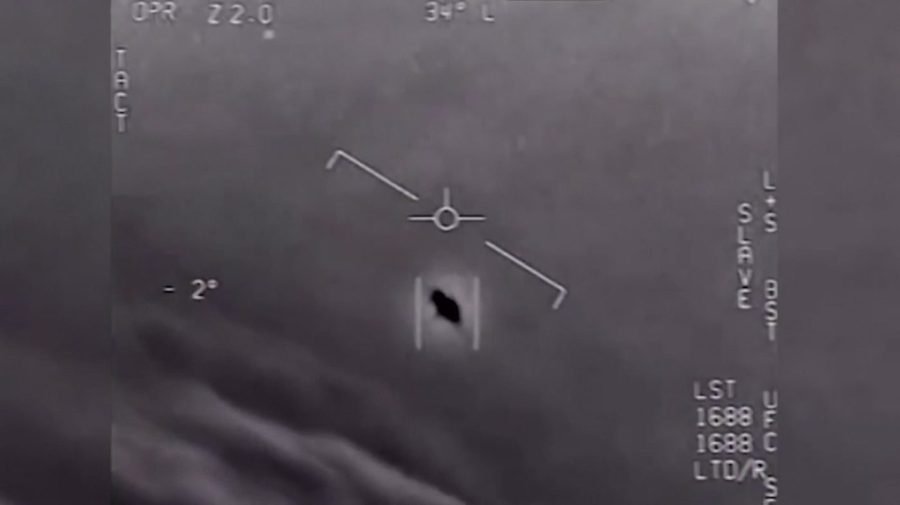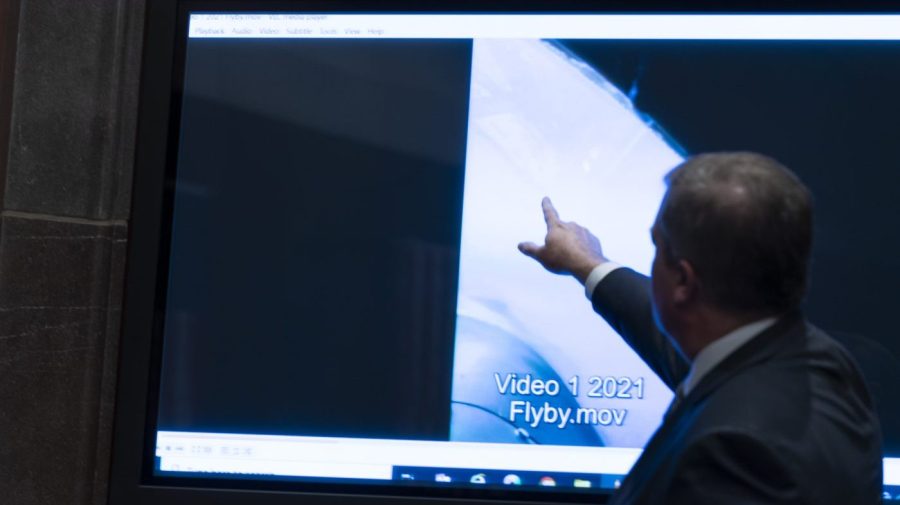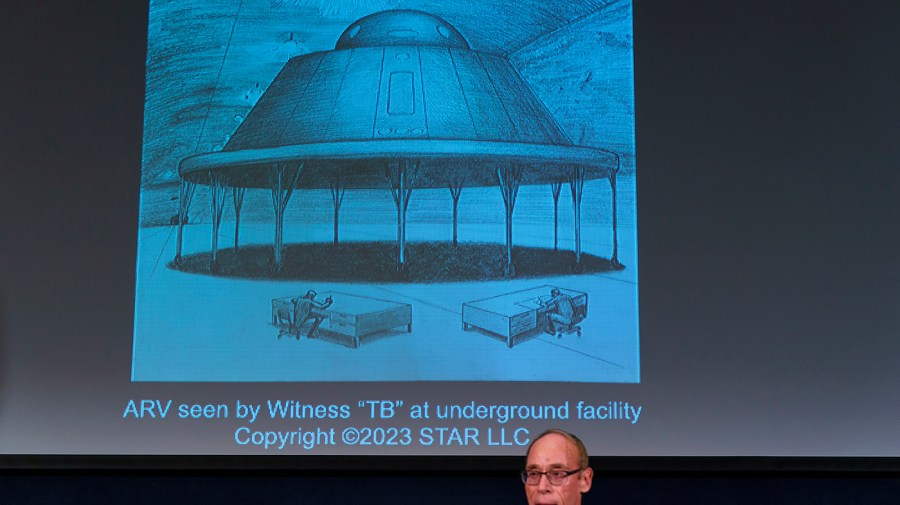Did US reverse-engineer alien spacecraft? And other Pentagon report takeaways
A long-awaited Pentagon report on unidentified anomalous phenomena (UAP) concluded Friday that there is no evidence the U.S. has reverse-engineered alien spacecraft and rebutted claims that Washington is hiding off-world technology or extraterrestrial biological material.
The first volume of an investigation from the All-domain Anomaly Resolution Office (AARO), called the Historical Record Report, debunks claims of alien or unexplainable UAP, more commonly known as UFOs.
It also attributes the persistence that the U.S. is hiding extraterrestrial material to a culture fascinated by aliens, a community trying to prove there is secret alien technology, the misidentification of common objects or other defense technology, and general distrust in the federal government.
But there were a few surprises in the report as well.
Here are the major takeaways.
Program proposal for investigating hidden off-world tech

The Department of Homeland Security (DHS) received a proposal for a program to investigate claims the U.S. has hidden off-world material.
The program, called “Kona Blue,” was pitched by supporters of the theory. It was never approved.
The AARO said the program began out of the Advanced Aerospace Weapons System Application Program and the Advanced Aerospace Threat Identification Program, both under the Defense Intelligence Agency (DIA) and overseen by a private contractor to develop cutting-edge scientific technology.
Part of those programs was UAP research. When the DIA canceled the programs, supporters proposed a separate initiative codenamed “Kona Blue” to look into UAP, paranormal research and reverse engineering off-world tech.
“KONA BLUE’s advocates were convinced that the [government] was hiding UAP technologies,” the AARO said. “They believed that creating this program under DHS would allow all of the technology and knowledge of these alleged programs to be moved under the KONA BLUE program.”
While it gained initial traction at the DHS, “Kona Blue” was never approved.
The agency explained that the U.S. government-controlled access program was expanded to include reverse-engineering UAP but did not offer any further details.
“This program was expanded despite the lack of any evidence or mission need to justify the expansion,” the AARO said, noting it was eventually shut down and never recovered any UAP.
Investigation of UAP sightings near nuclear sites

The AARO is still investigating a number of UAP sightings around America’s nuclear missile sites.
That includes claims of nuclear missiles or test reentry vehicles being shot down by UAP.
The AARO interviewed five former U.S. Air Force members who served around intercontinental ballistic missile silos at Malmstrom, Ellsworth, Vandenberg, and Minot military bases between 1966 and 1977 to look into the accounts.
The former Air Force service members documented experiences in which launch control facilities mysteriously lost power during flights, and a UAP destroyed a missile loaded with a dummy warhead in midflight.
In 1964, a ballistic missile reentry vehicle was allegedly shot down by a UAP and caught on film, but the AARO was not able to find the original footage. Still, the office was able to correlate an antiballistic missile test at the time.
The AARO said it is continuing to look into those accounts and U.S. programs at the time that may explain the mysterious incidents.
Various US projects on UAPs fail to find evidence of alien origin

The report reviewed the lengthy history of U.S. government programs that investigated UAP sightings and determined none of them ever found alien life or technology.
One of the first projects was “Project Saucer” from 1947-48, which looked into claims from a pilot named Kenneth Arnold flying near Mount Rainier, Wash.
Arnold said he saw nine circular objects flying at high speeds. The investigation never found any credible evidence of alien technology.
A successor to that program called “Project Sign” looked into 243 UAP sightings but determined they were nearly all common objects. Another successor called “Project Grudge” achieved similar results.
A more well-known investigation is “Project Blue Book,” which the U.S. Air Force director of intelligence established in 1952. The program lasted until 1969 and looked into balloons, astronomical sightings and aircraft.
The AARO reviewed more than 7,000 files from Project Blue Book and found that officials never found evidence of alien life or technology. Of the more than 12,000 sightings under the program, 701 remained unresolved, the office said.
The AARO report also mentions the famous Roswell incident in New Mexico in 1947, in which a crashed military balloon spurred conspiracies the U.S. was hiding alien bodies.
The U.S. has long debunked those claims, explaining it was from a balloon program at the time and the alleged alien bodies reported by some were dummies — and the AARO agreed.
CIA has surprising role in UAP studies

The AARO report documented several instances in which a CIA officer or CIA task group was involved with UAP.
The CIA opened an investigation into UAP in 1952 through a special study group, but found 90 percent of the sightings were explainable and 10 percent amounted to “incredible” claims, though they rejected alien or Soviet Union origin, according to the AARO.
Another investigation was briefly opened under the agency in 1964, with similar results.
In another instance, interviewees claimed that a former CIA official was involved with a reverse-engineering program from 2009-10. The AARO interviewed the former CIA official, who denied any knowledge of those claims.
AARO refutes reverse-engineering alien craft, other claims from witnesses

The bulk of the report is spent on refuting multiple witness statements and claims that the U.S. has reverse-engineered alien spacecraft or hidden extraterrestrial material.
The AARO looked into records as far back as 1945 in the first volume of its report and determined most UAP are normal objects, and those still a mystery remain so only because of a lack of data.
Witnesses who have claimed otherwise have often made mistakes in identification, the AARO said in the report, saying they may have been confused by emerging technology in the 20th century such as rockets, or even with newer programs and systems today.
“The interviewees and others who have mistakenly associated authentic sensitive
national security programs with UAP had incomplete or unauthorized access to these programs,” the AARO said.
In one instance, a witness claimed that a former U.S. military service member came into contact with a UAP, but the situation was denied by the service member, who mentioned they likely touched a stealth fighter jet.
Another claim said a private organization had collected a sample of alien technology, but the AARO determined it was of earthly origin.
And yet another interviewee claimed to possess 12 alien spacecraft, but the AARO found no evidence of the claims.
Copyright 2024 Nexstar Media Inc. All rights reserved. This material may not be published, broadcast, rewritten, or redistributed..











